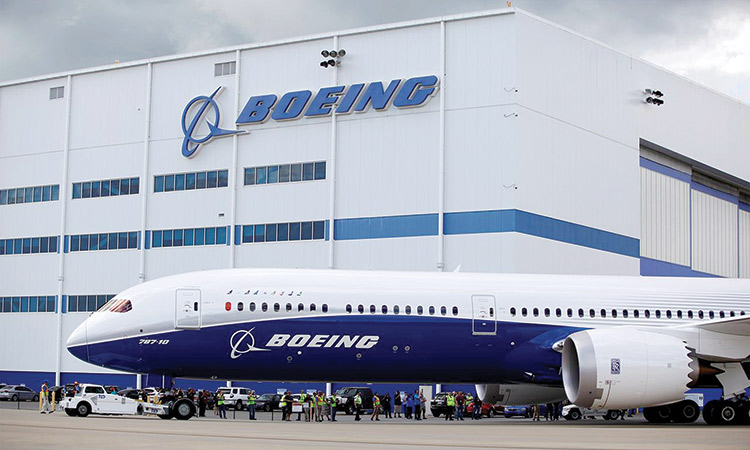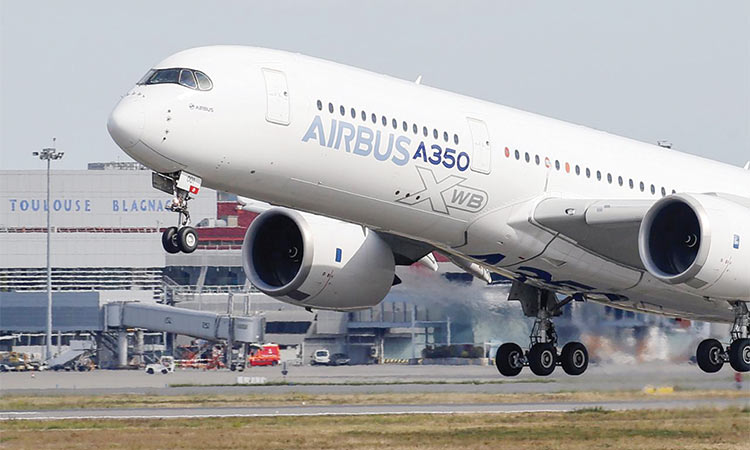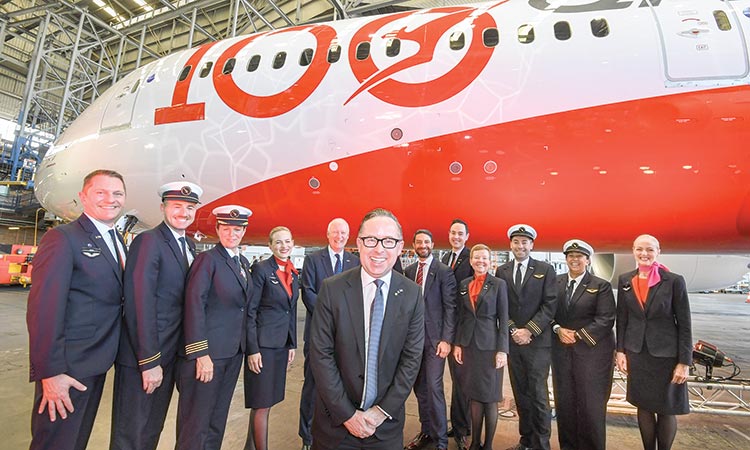Taiwan’s China Airlines to buy 16 Boeing 787s in $4.6 billion deal

Picture used for illustrative purposes.
The politically sensitive deal worth $4.6 billion at list prices was announced by the government-backed carrier weeks after a visit to Taipei by US House of Representatives Speaker Nancy Pelosi had angered Beijing and stoked Sino-U.S. trade tensions.
Boeing, which is trying to rebuild its business in China, was seen as the front-runner amid political issues surrounding the China-claimed, self-ruled island but had been at pains to avoid using her visit to actively lobby for a 787 deal, industry sources told Reuters earlier this month.
Boeing’s CEO said last month that 737 MAX deliveries to China remained blocked by COVID-19 and a “geopolitical overhang”, in a reference to simmering trade tensions between the world’s two biggest economies.
The order from Taiwan, however, is the latest sign of a long-awaited pickup in widebody demand and a boost for the US planemaker weeks after it resumed deliveries of its premier long-haul model following a 15-month halt over production issues.
China Airlines said the 787s would allow it to phase out its fleet of 22 older A330s. The orders for the 787-9 version include options for eight more as well as conversion rights to the higher-capacity 787-10 model.
The carrier, one of the world’s biggest freight airlines, cited the 787’s cargo-carrying capacity as one of the reasons behind its selection in a contest that industry sources said pitted the 787 against the A330neo.
Deliveries of the 787s are expected to start in 2025, the airline said.
China Airlines, which has been profitable during much of the pandemic because of a shift to cargo services, is now gearing up for a rebound in passenger travel when Taiwan lifts quarantine rules for arrivals.
Meanwhile, several of china’s biggest cities imposed tougher COVID-19 curbs on Tuesday, further crimping the activities of tens of millions, and sparking fresh concerns for the health of a barely growing economy.
Metropolises from the southern tech hub of Shenzhen to southwestern Chengdu and the northeastern port of Dalian ordered measures such as lockdowns in big districts and business closures aimed at stamping out fresh outbreaks.
The latest curbs, which will delay the start of the school year for some, reflect china’s strict adherence to a “dynamic COVID zero” policy of quashing every flare-up.
That insistence makes it an outlier as the rest of the world tries to live with coronavirus despite the cost to the world’s second-largest economy.
While many of the measures are initially planned to run just a few days, any major escalation or extension in some of china’s biggest cities risks further hurting already tepid growth.
While the two most populous cities of Beijing and Shanghai have faced only sporadic cases recently, COVID worries still weighed on Chinese stocks.
“Markets could once again be hit in the next couple of weeks, likely triggering another round of cuts by economists on the street,” Nomura warned in a note, highlighting the significance of cities such as Shenzhen, also a major port.
On Tuesday, the Shenzhen district of Longhua, which has 2.5 million residents, closed entertainment venues and wholesale markets, and suspended large events.
People must show proof of negative test results within 24 hours to enter residential compounds, and restaurants must limit patrons to half of capacity, Longhua’s district authorities said. The new curbs will run until Saturday.
The moves followed similar measures on Monday covering three other districts that affected over 6 million in Shenzhen, which has fought outbreaks of Omicron sub-variants this year.
City officials have stopped short of a blanket delay for the new school year, but six parents of young children said their schools had told them of postponements, as many in parent chat groups expressed anxiety over the uncertainty.
In Dalian, a major import hub for soybeans and iron ore, a lockdown begun on Tuesday is set to run until Sunday in the main urban areas with about 3 million residents. Households may send one person each day to shop for daily needs.
The lockdown requires non-essential workers to work from home, while manufacturing companies must cut on-site staff and maintain only basic and urgent operations.
The southwestern city of Chengdu, with a population of 21 million, ordered blanket closure of public entertainment and cultural venues from Tuesday. It planned to delay the start of the fall school semester, and mandated residents to have proof of negative test result within 24 hours for entry to certain areas.
Agencies







